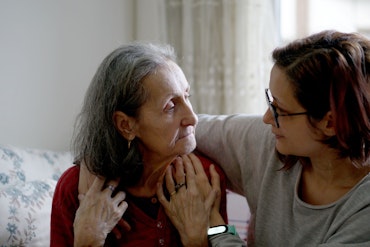Change cultural taboo around dying
Palliative Care Australia (PCA) chief executive officer (CEO) Liz Callaghan has challenged palliative care workers to change Australia’s cultural taboo around dying.

Palliative care workers need to make talking about dying easier for Australians.
Addressing palliative care workers at the Australian Palliative Care Conference in Melbourne last week, Ms Callaghan says dying in Australia is a hard business, made harder by families and loved ones difficulty in talking about end of life wishes.
“In the sector we know families struggle to talk about death and dying, how they want to be remembered and how they want to leave this world.
“We know that the health system, with its focus on interventions and saving lives, can work against a peaceful death. So it is up to us, up to you, to change it,” Ms Callaghan says.
“You can talk about death, dying and bereavement. You do know how to raise the issues of end of life care, how to discuss choosing or turning down medical interventions, how to speak to someone about putting an advance care plan in place. We need your skill set. We need you to start those conversations. In schools, in community centres, at death cafes.”
According to Ms Callaghan, Australians avoid talking about dying, resulting in difficult deaths and significant impacts on those left behind. She has challenged the palliative care sector to step up and change that culture.
Ms Callaghan says PCA has a remit to break down the last taboo in Australian culture, but will need everyone in the sector pulling together to do it.
“We have listened to international speakers telling us about the dying being marginalised by society, the value of social media in creating a community around those caring for the dying and what we need from Government to develop our sector.
“Some of the responsibility to change these things also falls to us. We need to make talking about dying easier for Australians – so then people aren’t marginalised, so people working in the field have a broader network of people to talk to and the Government is prepared to enter into conversations with us.
In her closing speech at the Palliative Care Conference Ms Callaghan urged palliative care workers to go out into the community and to “talk to people of all ages and stages about death, dying and bereavement and to do your part in breaking down the barriers for palliative care”.
“Without that our fight to be fit for the future is that much harder,” she says.























